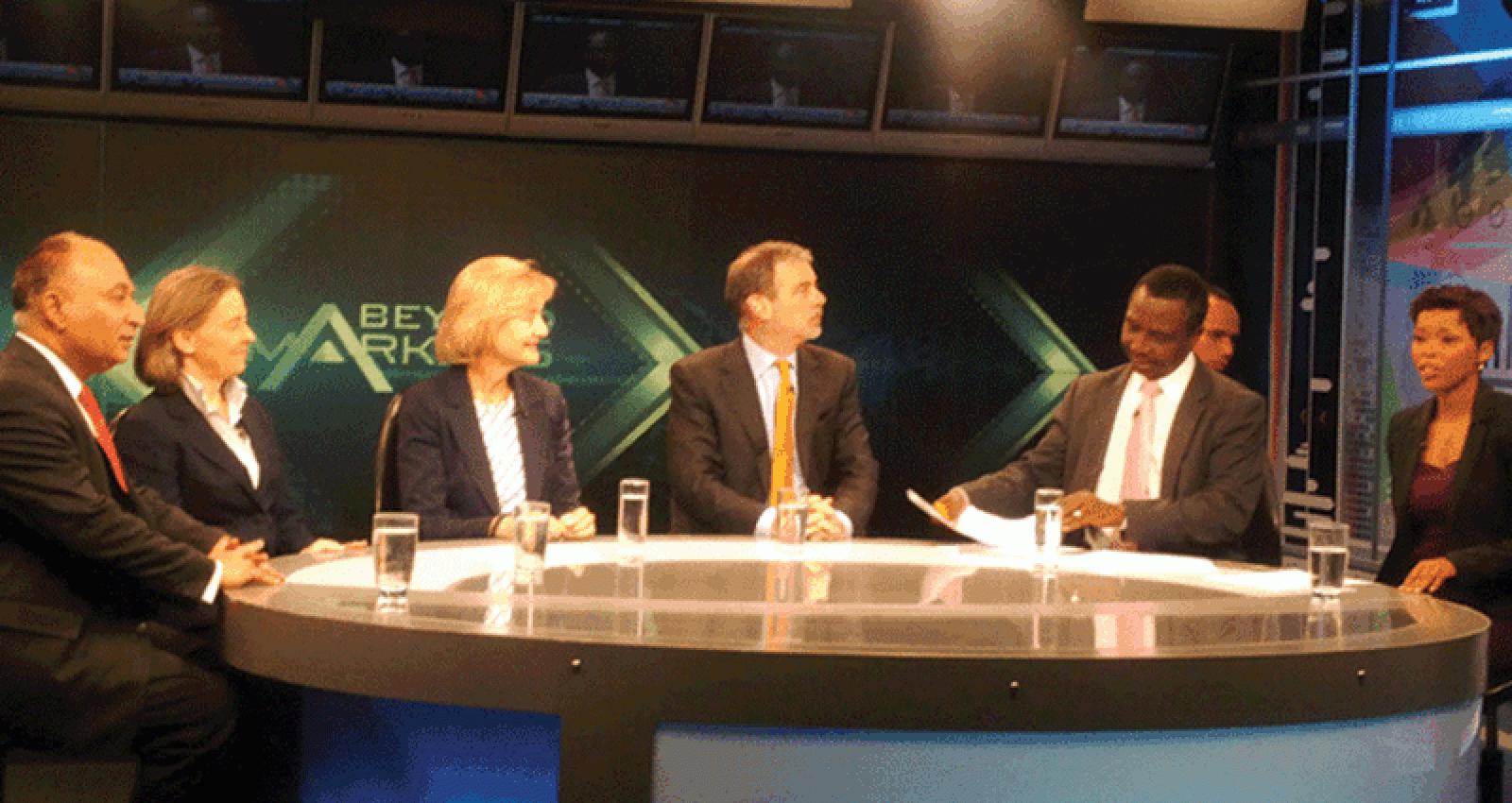Breaking News: Evaluation on Prime Time TV
Four evaluators walk into a TV studio. What happens next says a lot about the field’s growing influence.
Four evaluators walk into a TV studio. What happens next says a lot about the field’s growing influence.
By: Caroline Heider
During a recent visit to South Africa I found myself in a surprising situation: on TV. CNBC Africa interviewed me and a three of my peers from the regional development banks during the meeting of the Evaluation Cooperation Group in Johannesburg.
The discussion on the Beyond Markets program was a welcome opportunity to answer questions from two well-informed journalists on how independent evaluation is helping the African continent and its people.
The anchors wanted to know how independent we were – could we tell “truth to power” if things were going wrong, were we able to influence our respective institutions, and were these institutions delivering better services and results to client countries and their people as a result of our work?
Instead of repeating the answers (you can watch the interview here) let me reflect on why the discussion was important.
Thinking back to the origins of evaluation, it was a “donor thing” and reporting was to someone somewhere in another capital or at headquarters. It was a requirement that made little sense and where feedback was sparse on whether the information was used.
Today demand is growing in countries that receive development assistance for information about what works and why to help accelerate progress and meet people’s expectations for a better life.
The increasing requirement that there be evidence of effectiveness is a welcome development because it will bring closer together points in the evaluation process that for too long have been disconnected from each other. As more and more people demand to know whether assistance achieves its goals, the old model, in which the donor demands accountability through the institution, the evaluator visits the country, followed by long time lapses and uncertainty over what happened to the feedback provided on the ground, will be replaced by one that promotes more direct accountability.
Why is this shift happening now?
One simple explanation could be that South Africa is seriously committed to evaluation through its Department of Performance M&E, as Ian Goldman explained in his guest blog in January.
But, the interest in evaluation reaches well beyond the borders of the Republic of South Africa:
Among the more direct questions we were asked in the CNBC studio was what difference does evaluation make? We set out that, at its heart, evaluation takes lessons learned from the past and incorporates them into future plans and that in countries such as South Africa, its role in improving government accountability and the effectiveness of international assistance is already well established. But the anchor’s question is a fair one. What more can we do to make the point that, yes, evaluation does make a difference, and how can we support the growing demand for its use?

Add new comment